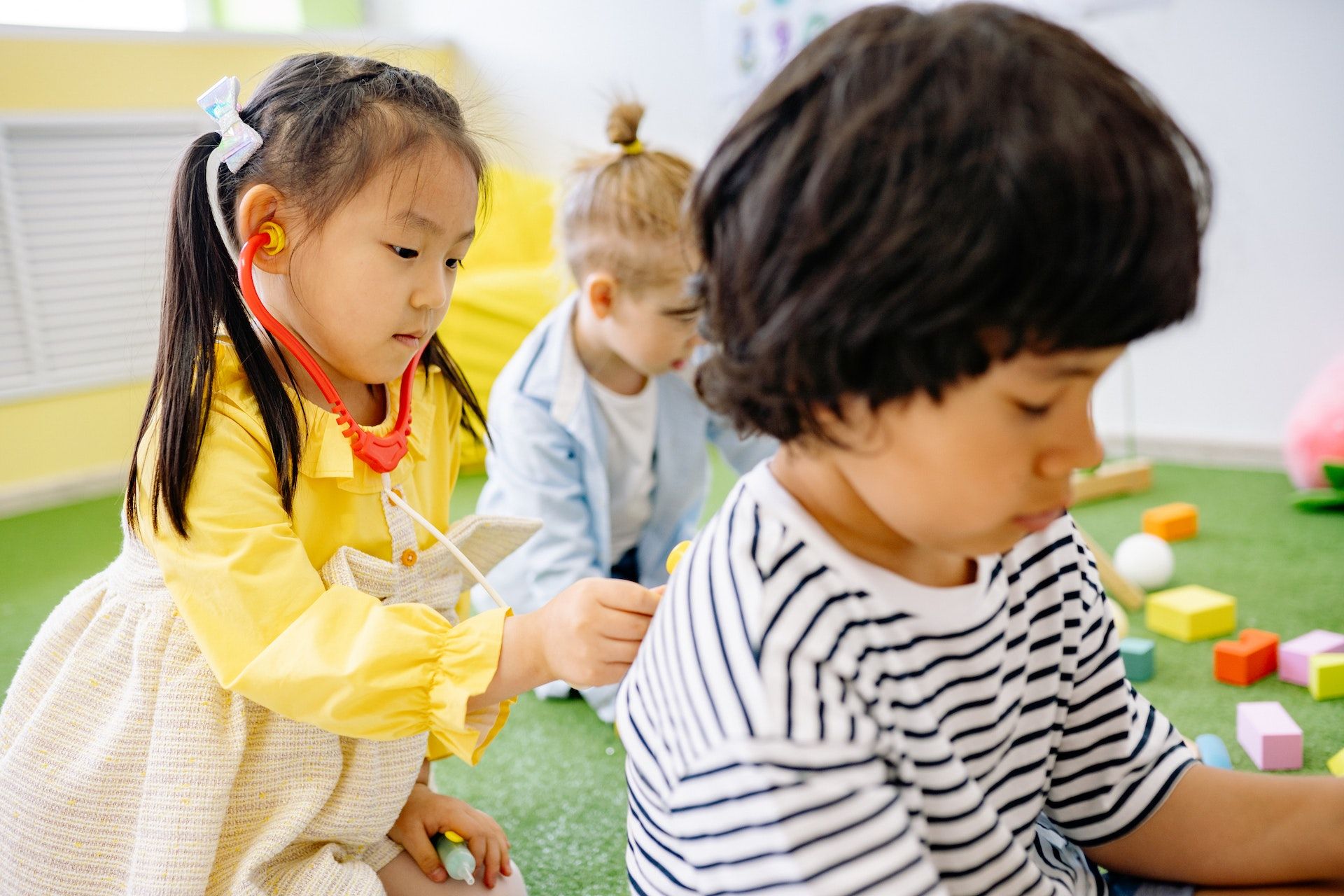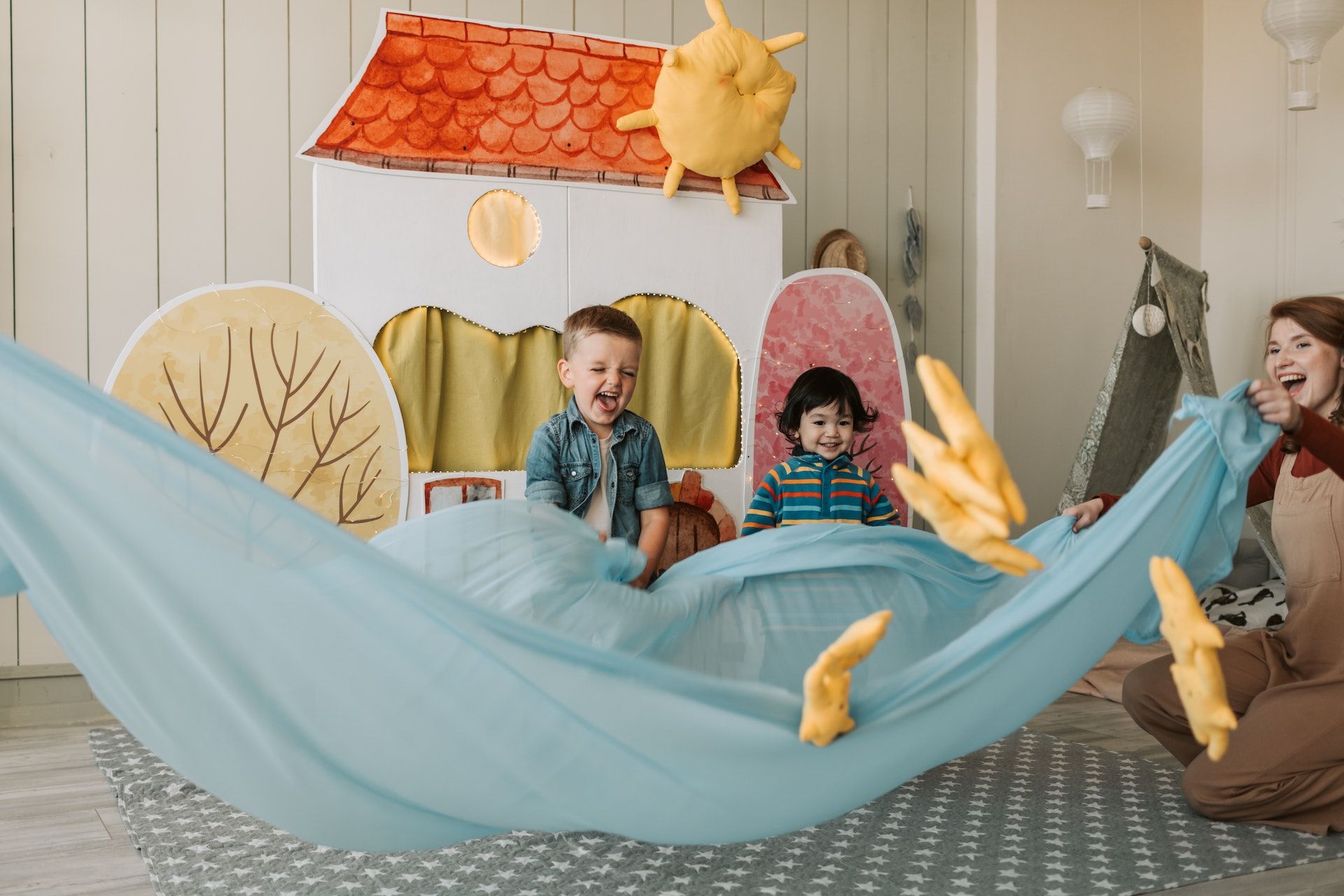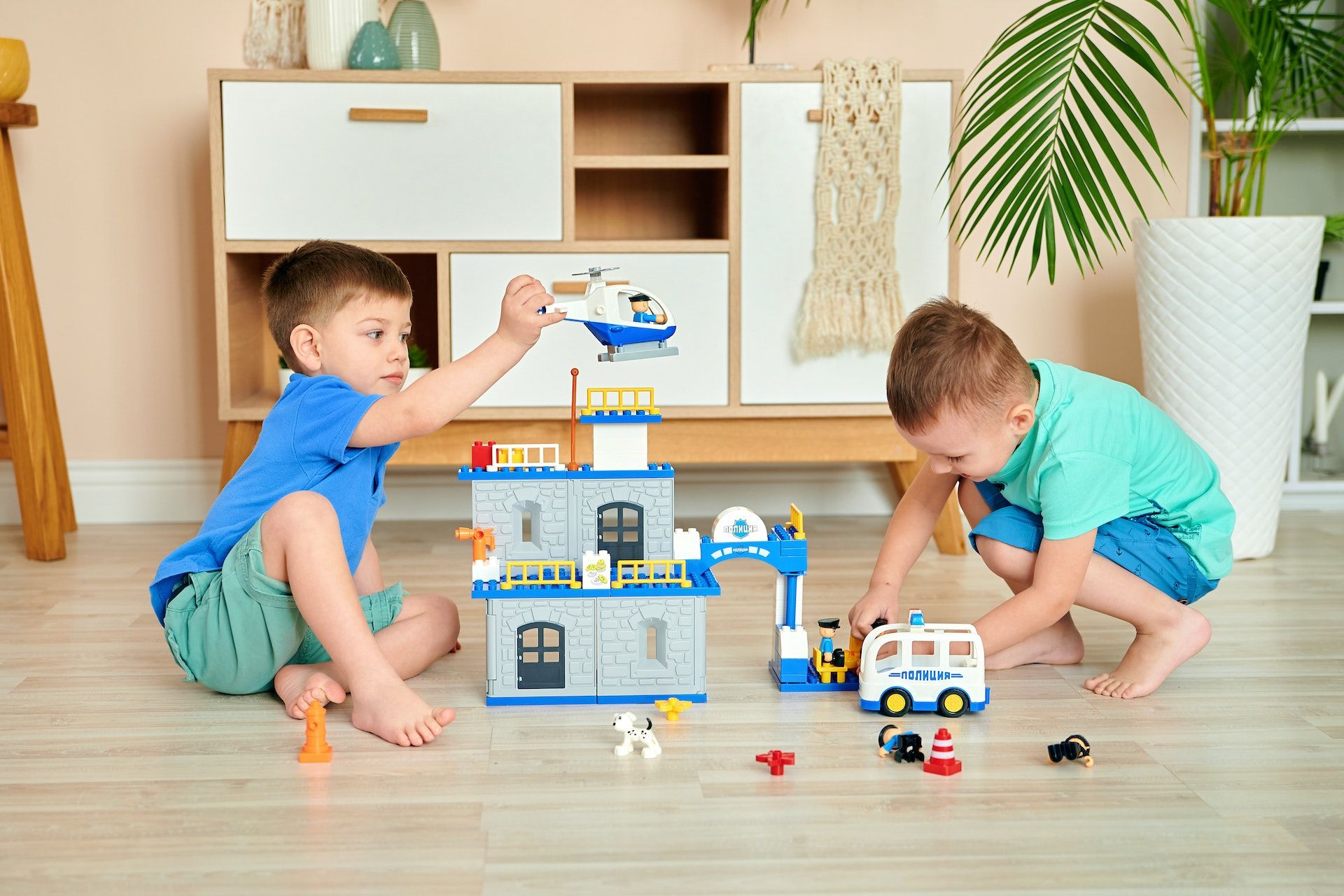Fun Ways to Help Your Toddler Learn Teamwork and Follow Instructions
6 min read
Last Modified 1 June 2024 First Added 3 August 2023

Just like brushing your teeth or washing your hands, learning to follow instructions and be a part of a team are other important skills we start to learn from an early age.
As your toddler beings to socialise with others and participate in group settings like school or clubs, learning these valuable social skills and the benefits they bring will set them up in good stead as their world expands.
But practically, teaching them this is not always going to be a smooth ride!
Introducing these skills may feel challenging especially if your toddler finds it difficult to follow directions or participate in group tasks.
However, a great and effortless way to make this process fun and engaging is to learn through play, such as using social skills toys.

Being part of a team is an integral part of life. We all rely on others from birth to our golden years, as we simply cannot go through life on our own.
For toddlers, learning teamwork forms a big part of their child development and will teach them many important life skills and values as they embark on their journey to adulthood.
Teamwork develops communication skills, patience, self-confidence, and tolerance to name a few.
And there are lots of ways to start honing these teamwork skills through engaging play!
Don’t Wake The Dragon is the ultimate team activity for little ones to complete! Everyone must line up in height order without speaking, and then shout “boo” to spook the imaginary dragon away.
Not only is this game heavily reliant on teamwork but it also offers the chance for toddlers to let their imaginations run free and build on their problem-solving skills!
Why not incorporate this game into a themed party or nursery day? They can imagine they’re in a castle and the only way to escape is to silently complete the height order task. This exciting challenge will put their teamwork to the test and help include light movement into their day. Additionally, there are a range of imaginative toys to keep your child entertained in a group setting.

It’s time to build a bridge together! In teams of 2, toddlers will be able to start experiencing teamwork to build an epic bridge using lots of fun and different materials.
Explain that they must be able to connect their half of the bridge to their partner’s half. They will have to lean on their communication skills to ensure that both halves fit together to form a bridge.
Lay out newspapers, cards, jenga, books and even construction toys and watch as the bridges evolve and the teamwork flourishes!
Who didn’t love building a tall tower when they were younger?
Just like the bridge game, toddlers will work in small groups of about 3 or 4 to make the tallest tower! Let each team choose which materials they would like to use. From spaghetti and marshmallows, toilet rolls or even Play-Doh, there are so many household objects to use to make an epic tower.
This tower team activity is a fantastic way to get everyone involved and participating in building. And using fun and exhilarating challenges to experience teamwork will help to engage toddlers as they begin to learn and develop this skill.

The ability to follow instructions is an important skill toddlers will continue to use throughout the rest of their lives.
Helping them to understand the concept of instructions will allow them to easily function in different settings like school, friend’s houses or at clubs.
A wonderful way to start introducing instructions and how to follow them is through games!
Why not incorporate the following activities into your week?
Scavenger Hunts are a fantastic game to teach instructions. It’s a straightforward activity for your toddler to follow directions in a fun way. Or make it a group game and they can practice their teamwork skills at the same time!
Why not ask them to find a specific coloured or shaped object? Having simple yet precise instructions will help them practice their listening skills and ability to complete an activity accurately.
Use fun rewards like an afternoon of baking or a movie night to incentivise and encourage them to follow the directions correctly.
It’s time for cooking! Following a recipe is a brilliant and engaging way to help toddlers learn why instructions are important and actively practice following them.
We all know that cooking mishaps can happen if you don’t add enough flour or add too much salt! Working your way through a simple recipe with your toddler is a great bonding experience, an opportunity to explain instructions and a whole bundle of fun.
When real cooking is not on the cards, let your toddler practice with their own kitchen role play sets. Ask them to set up the picnic spread neatly with the Busy Me Picnic Playset or to cut three slices of cake with the Early Learning Centre Wooden Birthday Cake.

Simon Says is a classic children’s game full of fun, laughter, and instructions! It puts toddlers’ listening skills to the test as they wait to hear what commands they must follow.
It’s best to start with an easy command like “Simon Says touch your ear” or “Simon Says jump three times”.
As they build their understanding of following instructions, you can start to increase the complexity of the direction to see if they can follow a command with two parts. Some examples are:
“Simon Says touch your left shoulder and touch your right knee”
“Simon Says stand on one leg and put your thumbs up”
“Simon Says sit on the floor and put both hands on your head”
There are so many other games and activities to trial when teaching your children the importance of teamwork and following instructions.
Not every game will work effectively with every child, and they may learn better through different activities than their siblings or peers! It’s all about exploration and finding a few key games you can use to explain these concepts clearly.
Remember to positively reinforce participation in these activities and to make learning fun. Provide treats or prizes for following instructions correctly or for working as part of a team to help toddlers regard these skills as positive and beneficial!
To read our disclaimers, please click here.